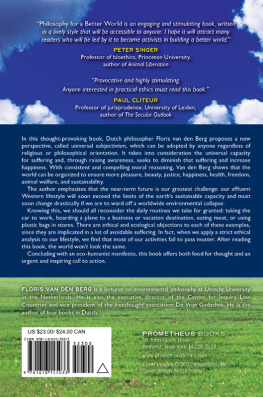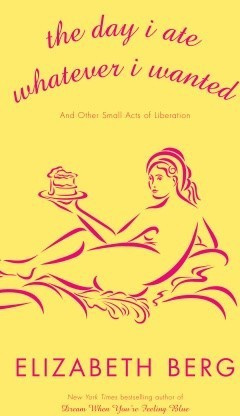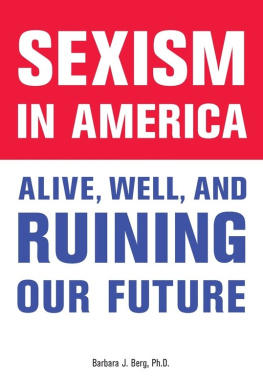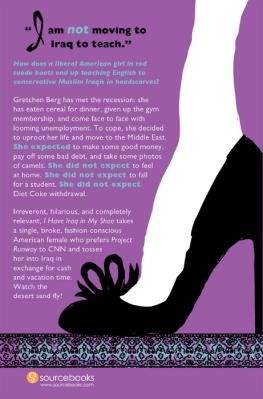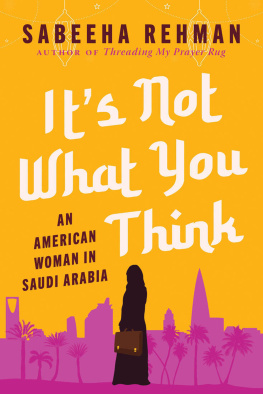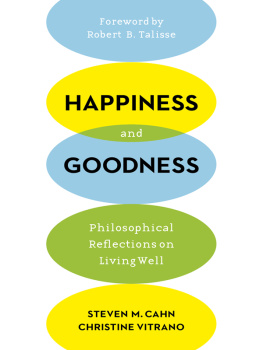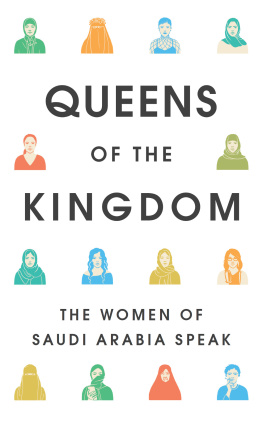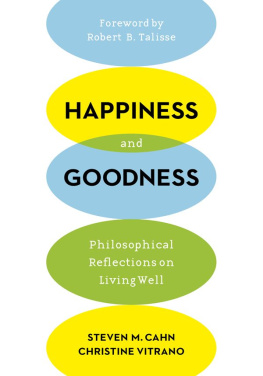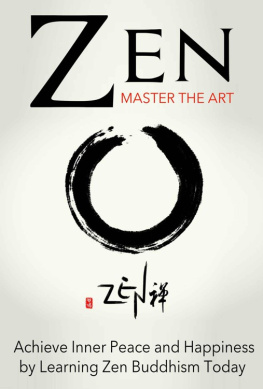
I am grateful to many people and organizations that have helped to make the English translation and publication of this book a reality. Despite my sometimes misanthropic inclinationsthose who have read the book will understand what I meanI find solace in the friendship and cooperation that I have experienced.
First and foremost I must thank my friend and mentor Paul Cliteur, author of The Secular Outlook, who has put a lot of effort into fundraising and securing other support. In April 2011 I obtained my doctorate for Harming Others: Universal Subjectivism and the Expanding Moral Circle, prepared for Leiden University under his supervision. Philosophy for a Better World is a popular version of my dissertation.
I wish to thank the Dutch Foundation for Literature, and especially Maarten Valken, for its substantial contribution to the book's publication in English. I would also like to thank the following organizations for their generous financial support: the Remonstrantse Kerk in Bussum, the Belgium humanist association Humanistisch-Vrijzinnige Vereniging Gent, the Dutch Radar Foundation (for equal treatment; against discrimination), and Alain van Nieuwenburg of the Belgium humanist organization Vrijzinnig Vilvoorde. Henk Engelsman, board member of De Vrije Gedachte, kindly helped with the financial administration of the project.
Without publisher Leo De Haes of Houtekiet Publishing there would not have been a book to translate. Leo encouraged me to work on my book and helped to improve the text. I would also like to express my gratitude to Steven L. Mitchell, editor-in-chief of Prometheus Books, for his support and friendly communications.
I am honored and grateful that Paul Kurtz, one of my intellectual heroes, was willing to write the foreword but sadly was unable to do so before his passing. During my studies at Leiden University, more than a decade ago, Paul Cliteur suggested that I read Paul Kurtz's Toward a New Enlightenment. This book sparked my interest in humanism and the philosophy of humanism. In 2005 I had the opportunity to attend the Center for Inquiry conference Toward a New Enlightenment in Amherst, New York. At that time Paul consented to be interviewed. After that I got involved with the Center for Inquiry. In the summer of 2006, I was a visiting scholar a Center for Inquiry Transnational in Amherst, New York, during which I worked on my theory of universal subjectivism. In 2007 Paul offered me the opportunity to set up the Center for Inquiry Low Countries. The two Pauls, Cliteur and Kurtz, have coached me in my philosophical studies and humanist endeavors. Both became friends along the way.
In recent years I had two short conversations with Peter Singer. He inscribed my copy of Practical Ethics with the words: Best wishes for your philosophical studies! I hope he will think that this to my mind Singerian book indicates that my studies are off to a good start. There is no philosopher, past and present, with whom I feel more affinity. Singer's approachapplying philosophy to achieve a better worldand his personal vegan lifestyle are my motivation for persevering in the arduous study of philosophy and for getting involved in activism for a better world.
Michiel Horn, a Dutch-born professor emeritus of history at York University, Toronto, has translated this book. It was a stimulating experience to work with him, trying to improve the book and to adapt it for a North American audience. I wish to thank him for his meticulousness and persistence. Thanks also go to Michiel's wife, Cornelia Schuh, for her editorial corrections and suggestions.
Furthermore, I wish to thank my colleagues in the Utrecht University Copernicus Institute of Sustainable Development, who provide a stimulating environment in which I feel at home.
I thank my parents, Andr and Elly, for their unremitting support in so many ways. My sons, Julius and Hugo, are used to seeing their dad seated behind his desk, a book-laden island in the living room, as he struggles with self-imposed moral problems. Their bold questions have stimulated me to think harder and formulate my answers clearly.
Last but emphatically not least, I wish to thank the love of my life, Annemarieke Otten, to whom this book is dedicated. Not only does she offer emotional and moral support, but she is also my intellectual sparring partner. The ideas in this book originate from our many conversations and debates. Annemarieke constantly overwhelms me with newspaper articles and Internet sources relating to this project. She manages to make ideas concrete, to turn lofty ideals into a way of living. In many ways this book is one of gloom and doom. In stark contrast, my life with her is one of love and happiness.


On the whole, we don't take the ethical and ecological consequences of our daily activities into account: taking the car to work, eating meat, flying to our holiday destination, wearing cotton shirts, buying strawberries in winter, acquiring hardwood garden furniture, eating fish, using plastic bags in stores. There are ethical and ecological objections to each of these examples. Without our being aware of it, our lifestyle does an immeasurable amount of damage to human beings, animals, and nature. Everyday actions therefore have to be assessed on the basis of their moral acceptability. Alas, the conclusion is that almost nothing we do can stand up to an ethical analysis. And that is frustrating. A lot of (unnecessary) suffering attaches to our way of life. The ethical investigation of your own lifestyle can lead to a disturbing experience, an ethical gestalt switch. Suddenly you're no longer the hero of your own life story but the villain.
The job of philosophers is searching for blind spots in our knowledge and epistemological methods on the one hand, and for blind spots in our ethics on the other. Philosophers are explorers in the realm of ideas.and theoretical insight, you can succeed in finding new moral blind spots. When such a blind spot has been located, it is important to solve the problem. For example, in his book Animal Liberation in the early 1970s, the philosopher Peter Singer focused attention on the suffering of animals in intensive factory farming.
LESS SUFFERING, MORE HAPPINESS
This book explains the theory of what I call universal subjectivism. This is an ethical theory that everyone can apply quite simply to the search for blind spots and to finding the ways of making them disappear. The point of departure is the capacity for suffering. The issue is to diminish suffering and promote happiness.
The summit of 2500 years of philosophical writing is a three-word sentence in a footnote in a book by the English philosopher Jeremy Bentham (17481832): Can they suffer? These three words are the most profound and important words in all of the history of philosophy. Bentham points to the essential issue in ethics, that is, the capacity for suffering. What matters is not the possession of certain faculties, such as thinking or speaking, but the capacity of being able to suffer.
Bentham concludes that, from this perspective, the way human beings treat animals is unethical: The day may come, when the rest of the animal creation may acquire those rights which never could have been withholden from them but by the hand of tyranny. The French have already discovered that the blackness of the skin is no reason why a human being should be abandoned without redress to the caprice of a tormentor. It may come one day to be recognized, that the number of the legs, the villosity [hairiness] of the skin, or the termination of the
Next page
